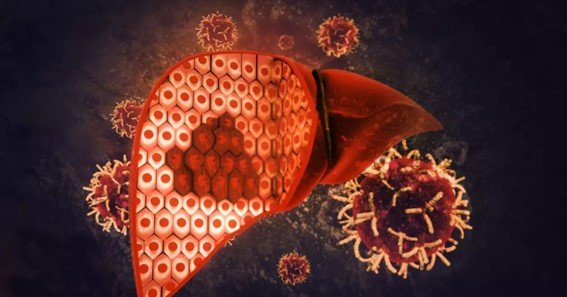Vitamin A is well-known for its benefits to eye health and immunity, but is vitamin A good for liver health as well? The answer is nuanced. While vitamin A plays a role in supporting liver function and detoxification, it’s essential to consume it within safe levels, as excessive intake can be harmful to the liver. This article covers the vitamin A benefits for liver, safe intake guidelines, and foods that can help you maintain optimal liver health.
Is Vitamin A Good for Liver Health? Understanding Its Importance
Is vitamin A good for liver function and health? Yes, in moderation. Vitamin A benefits for liver health include its role in cell regeneration, immune support, and potentially in detoxifying processes. The liver requires various nutrients, including vitamin A, to perform its functions efficiently, making it one of the essential vitamins for liver health.
The Importance of Vitamin A for Liver Health
The importance of vitamin A for liver health is linked to its antioxidant properties, which help protect liver cells from oxidative stress. Vitamin A and liver function are closely related, as this nutrient supports healthy cell turnover and assists in the liver’s regeneration after damage. However, maintaining safe levels of vitamin A for liver health is crucial, as too much vitamin A can put stress on the liver, leading to toxicity.
Effects of Vitamin A on Liver Function
The effects of vitamin A on liver function can be beneficial or harmful, depending on the intake level. While moderate amounts of vitamin A support liver health, excessive levels can result in liver toxicity. Risks of vitamin A toxicity for liver include liver enlargement, cell damage, and even liver failure in severe cases. Therefore, sticking to the recommended vitamin A intake for liver is essential to avoid adverse effects.
Role of Vitamin A in Liver Detoxification
Some studies suggest a potential role of vitamin A in liver detoxification by supporting the liver’s ability to process and remove toxins. Vitamin A’s antioxidant properties may also aid in reducing oxidative stress, which helps the liver function efficiently. However, this detoxifying role is only beneficial when vitamin A is consumed in safe amounts.
Safe Levels and Recommended Vitamin A Intake for Liver Health
The safe levels of vitamin A for liver health vary based on age and overall health, with the daily recommended intake generally set at 700–900 micrograms for adults. It’s important to avoid exceeding 3,000 micrograms daily to prevent toxicity. To support liver health, obtaining vitamin A through dietary sources rather than high-dose supplements is usually the best approach.
Foods Rich in Vitamin A for Liver Support
Eating a balanced diet rich in natural sources of vitamin A can provide foods rich in vitamin A for liver support without the risk of overconsumption. Here are some good dietary sources:
- Carrots and Sweet Potatoes – High in beta-carotene, which the body safely converts to vitamin A as needed.
- Leafy Greens – Spinach and kale contain beta-carotene and other liver-supportive nutrients.
- Eggs and Dairy – Provide moderate amounts of vitamin A in a form easily absorbed by the body.
These foods offer a safe way to obtain vitamin A and support liver function naturally.
FAQ
- Is vitamin A good for liver health in moderation?
- Yes, vitamin A in moderate amounts supports liver function and overall health. It’s crucial, however, to avoid excessive intake to prevent toxicity.
- What are the risks of vitamin A toxicity for liver health?
- High levels of vitamin A can lead to liver enlargement, cell damage, and, in severe cases, liver failure. It’s essential to stay within safe intake limits.
- What role does vitamin A play in liver detoxification?
- Vitamin A may aid in detoxification by supporting the liver’s ability to remove toxins and reducing oxidative stress, but this benefit is only safe at moderate intake levels.
- What foods provide safe vitamin A levels for liver health?
- Foods like carrots, sweet potatoes, leafy greens, eggs, and dairy offer safe sources of vitamin A, which can be beneficial for the liver.
- How much vitamin A is recommended for liver health?
- The daily recommended intake is around 700–900 micrograms for adults, with a maximum limit of 3,000 micrograms to avoid toxicity.
Conclusion:
So, is vitamin A good for liver health? Yes, when consumed in safe amounts. Vitamin A supports liver function, immune health, and cell regeneration. However, due to the risks of liver toxicity, it’s essential to adhere to the recommended vitamin A intake for liver health and rely on dietary sources like carrots, leafy greens, and eggs. By maintaining balanced vitamin A levels, you can support your liver’s health while avoiding potential harm.










